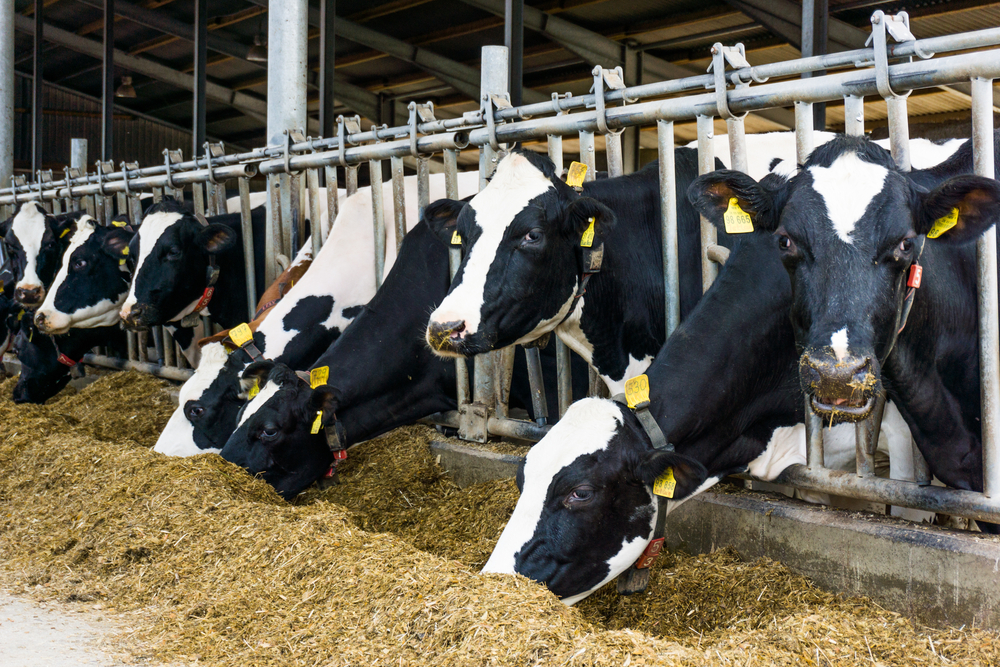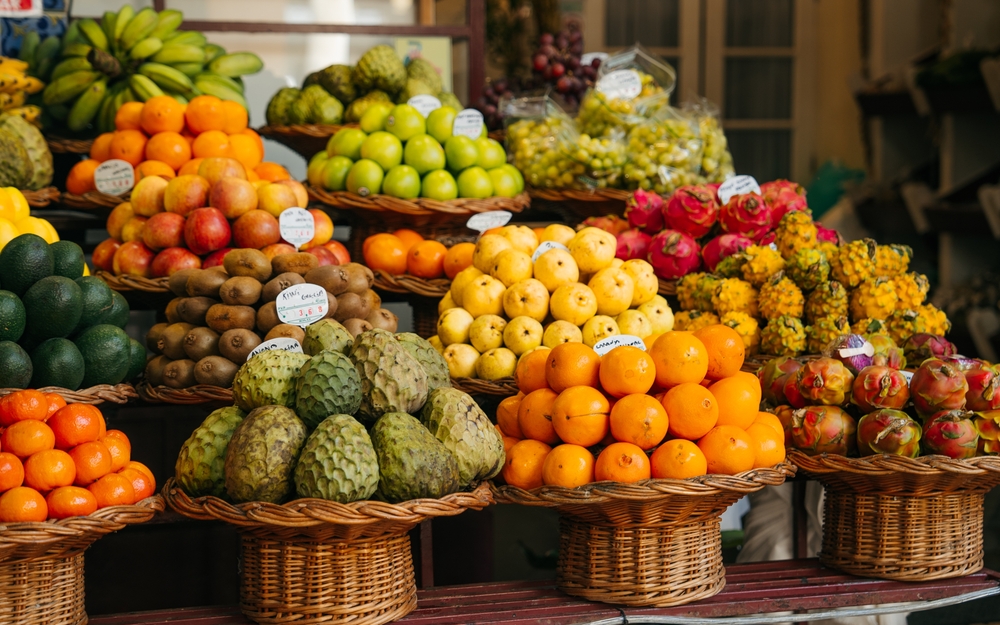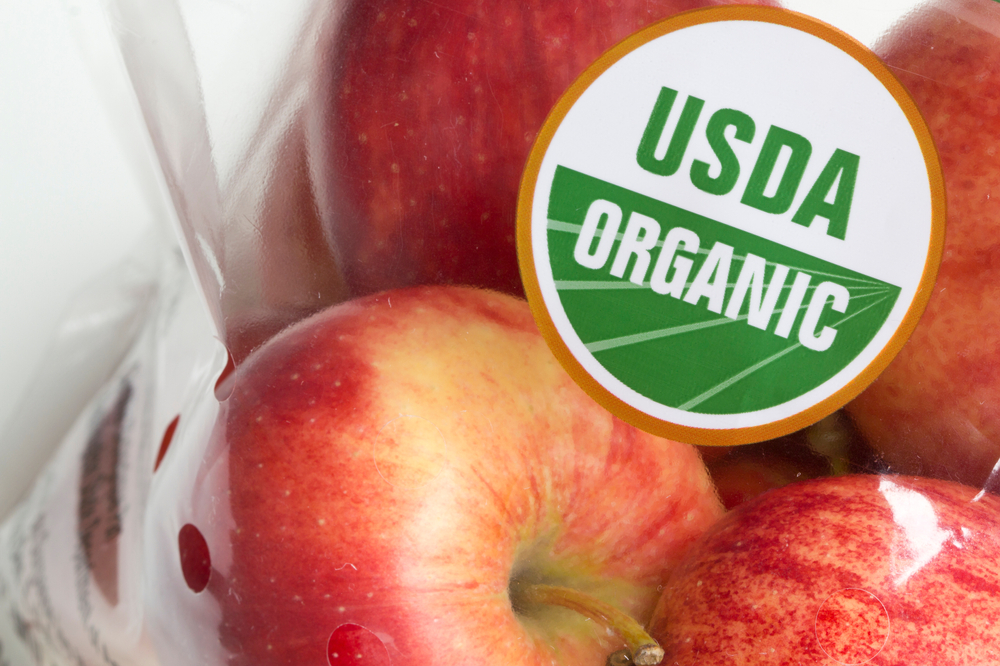The global food system is complex, and it often works in ways that benefit a few while leaving the majority at a disadvantage. From the influence of large corporations to the exploitation of resources, the system can feel rigged against everyday consumers. But understanding how it works and what drives it can help you make more informed decisions. In this article, we’ll explore 15 reasons why the global food system is rigged and offer strategies to outsmart it.
1. Big Corporations Control The Food Supply

Large food corporations hold an overwhelming amount of power in the global food system. These corporations dictate what food is available, how it’s produced, and often, how it’s marketed. This concentration of power means that consumers have limited choice, and the food available to them is often designed to maximize profit rather than nutrition or sustainability. According to Farm Aid, unchecked corporate power leaves eaters with fewer options to support good food from family farmers and pushes independent family farms out of business. It’s not just about food—it’s about creating dependency and locking people into cycles of consumption.
To outsmart this, start supporting smaller, local businesses and farmers who prioritize quality over quantity. By choosing alternatives to mass-produced foods, you can help shift the demand away from these monopolies. Look for independent food producers, farmers’ markets, or ethical food brands that focus on sustainability and transparency. This way, you reduce your reliance on big corporations while promoting better alternatives.
2. The Focus On Profit Over Health

The primary goal of most food companies is profit, not health. Many of the foods that dominate the market are processed, high in sugars, fats, and additives, all designed to make them addictive and cheap to produce. This has led to a rise in health problems such as obesity, diabetes, and heart disease. But because health isn’t the priority, food companies continue to push products that contribute to long-term health issues. According to School Food Matters, major food companies rely heavily on profits from unhealthy foods, which are often marketed aggressively to vulnerable populations.
To outsmart this, educate yourself about the foods you’re consuming. Read labels, understand nutritional information, and make informed choices based on real, whole foods rather than heavily processed options. Embrace a whole-food, plant-based diet if possible, and limit your intake of ultra-processed foods. Your health should be your priority, and taking back control of your food choices is the first step.
3. Subsidies Keep Unhealthy Foods Cheap

Governments around the world subsidize the production of unhealthy foods, making them artificially cheap and accessible. The most heavily subsidized crops tend to be grains, soy, and corn, which are often used to produce processed foods. This system encourages mass production of unhealthy options while making healthier alternatives, like fresh fruits and vegetables, less affordable for many people. According to the R Street Institute, government subsidies for crops like corn and soy contribute to the prevalence of unhealthy diets by making processed foods cheaper.
To outsmart this, focus on buying in-season produce or growing your food when possible. Supporting local farmers who don’t rely on government subsidies can help create a more sustainable and health-conscious food system. Additionally, advocating for policy changes that prioritize the health of consumers over corporate interests can help shift the system in a more favorable direction.
4. The Power Of Marketing Manipulates Choices

Food companies are masters of marketing, using tactics to manipulate consumers into choosing their products over healthier options. Advertising is designed to make unhealthy foods appear desirable and essential, especially to children and vulnerable populations. This constant bombardment of food advertisements influences our eating habits and often leads to poor decision-making when it comes to food choices. According to Canada’s Food Guide, food marketing can significantly impact our food choices by creating trends and encouraging purchases based on promotional tactics rather than nutritional value.
To outsmart this, limit your exposure to food advertising by avoiding processed food aisles and commercialized fast food outlets. Instead, educate yourself and your family on what real, nutritious food looks like. By opting for simple, unprocessed ingredients, you can sidestep the marketing strategies that manipulate your food choices. Teaching others about mindful eating can also help to break the cycle of consumer manipulation.
5. Industrial Agriculture Damages The Environment

The global food system is heavily reliant on industrial agriculture, which often leads to environmental degradation. Monocropping, excessive pesticide use, and factory farming contribute to soil depletion, water contamination, and loss of biodiversity. These practices are not sustainable in the long term and are major drivers of climate change, making the food system not only unhealthy for consumers but also harmful to the planet.
Outsmarting this requires supporting regenerative farming practices that prioritize sustainability, soil health, and animal welfare. Look for food that is labeled as organic, free-range, or sustainably farmed. Choosing plant-based foods over animal-based ones can also reduce your environmental footprint. Supporting local, eco-conscious farms can help promote environmentally friendly practices on a larger scale.
6. Food Deserts Prevent Access To Fresh Produce

Many communities, especially low-income urban areas, live in food deserts—regions with limited access to fresh fruits and vegetables. These areas are dominated by convenience stores and fast-food chains that offer little in the way of nutritious food. Without access to fresh, healthy food, these communities often resort to processed foods, contributing to poor health outcomes.
To outsmart this, get involved in local food justice initiatives or support organizations working to improve food access in underserved areas. You can also join or create community gardens to grow fresh produce in urban spaces. On an individual level, focus on eating more whole foods and take advantage of grocery delivery services that offer fresh produce to areas with limited access.
7. Factory Farming Exploits Animals

Factory farming is the backbone of industrial meat production, and it’s an unethical practice that exploits animals for profit. Animals in factory farms are often subjected to harsh conditions, including overcrowding, poor living standards, and inhumane treatment. These practices not only harm the animals but also contribute to environmental degradation and public health risks.
To outsmart this, reduce your consumption of animal products or consider a plant-based diet. If you choose to eat meat, opt for ethically raised and humanely treated animals. Supporting companies that prioritize animal welfare and transparency in farming practices can help shift the industry toward more humane and sustainable practices.
8. Food Waste Is A Global Crisis

Despite the abundance of food in many countries, food waste is a significant global problem. Around one-third of all food produced globally is wasted, either in production, distribution, or at the consumer level. This is an immense waste of resources, and it also exacerbates food insecurity around the world. Yet, the food system continues to overproduce in ways that contribute to waste while millions of people go hungry.
Outsmarting this requires making conscious decisions to reduce food waste in your own life. Plan your meals, store food properly, and utilize leftovers to minimize waste. Support companies and initiatives focused on food recovery and redistribution, which aim to get surplus food to those who need it. Reducing food waste helps lower your ecological footprint and contributes to a more equitable food system.
9. The Exploitation Of Labor In The Food Industry

The food industry often relies on cheap labor, exploiting workers in farms, processing plants, and restaurants. Many workers in the food production and service sectors face poor wages, unsafe working conditions, and little job security. This exploitation is especially prevalent in developing countries, where labor laws may be weaker or less enforced.
To outsmart this, support food brands and businesses that pay fair wages and treat their workers ethically. Look for certifications such as Fair Trade or those indicating responsible labor practices. By choosing products from companies with transparent supply chains, you can help ensure that workers are treated fairly and that their rights are protected.
10. Highly Processed Foods Are Addictive

Highly processed foods are engineered to be addictive. With their combination of sugar, fat, and salt, these foods activate the brain’s pleasure centers, leading to cravings and overconsumption. As a result, many people find it difficult to break free from processed food addiction, contributing to obesity and chronic diseases.
To outsmart this, make a conscious effort to avoid highly processed foods and opt for whole, natural foods. Cooking at home with fresh ingredients allows you to control what goes into your meals and reduce the temptation to indulge in unhealthy processed options. Over time, you’ll reduce your cravings for junk food and begin to appreciate the flavors of whole foods.
11. The Myth Of “Cheap” Food

The food system often promotes the idea that processed and fast food are the cheapest options, but this is a deceptive notion. While these foods may seem inexpensive upfront, they come with long-term costs, including healthcare expenses related to obesity, diabetes, and heart disease. The hidden costs of poor diet choices can add up over time, making “cheap” food far more expensive than it initially appears.
To outsmart this, invest in whole foods that may cost more upfront but offer long-term health benefits. Growing your food, buying in bulk, or participating in community-supported agriculture (CSA) programs can also help reduce costs. When you prioritize your health, the real cost of food becomes much clearer.
12. The Disconnection From Food Production

In today’s world, most people are disconnected from where their food comes from and how it’s produced. This lack of awareness makes it easier for unethical practices and unsustainable methods to persist. Without understanding the environmental and social impacts of our food choices, many continue to support harmful industries unknowingly.
To outsmart this, take the time to learn about food production and where your food comes from. Support local farms, sustainable agriculture, and ethical food producers. Educating yourself on food systems will empower you to make decisions that align with your values and promote a healthier, more sustainable world.
13. The False Promise Of Superfoods

Superfoods are often marketed as magical solutions to health problems, but the truth is that no single food can transform your health on its own. The food industry capitalizes on this trend, promoting expensive, exotic foods while overshadowing the importance of a balanced and varied diet. Superfoods are often just a marketing tactic, and many of them are produced unsustainably or are overpriced.
To outsmart this, focus on a balanced diet filled with a variety of fruits, vegetables, whole grains, and lean proteins. Don’t fall for the hype around so-called superfoods; instead, invest in real, nutrient-dense foods that provide all the essential vitamins and minerals your body needs. Eating a diverse range of foods is the most effective way to ensure optimal health without the gimmicks.
14. The Influence Of Government Policies

Government policies often favor large agricultural corporations over small-scale, sustainable farming. This is due to lobbying, campaign donations, and political influence that perpetuate the interests of the most powerful food industries. These policies create barriers to fair competition and hinder the development of more sustainable, ethical farming practices.
To outsmart this, get involved in policy advocacy and support legislation that promotes sustainable agriculture, fair labor practices, and better food safety standards. Voting with your voice and your dollars can help drive change within the system. Holding lawmakers accountable for their policies can contribute to a more equitable and healthy food system for all.
15. Food Insecurity Remains A Global Issue

Despite the abundance of food in the world, food insecurity remains a pressing global issue. Millions of people still lack access to nutritious, affordable food, while vast quantities of food are wasted each year. The structural problems in the global food system contribute to this paradox, making it difficult for those in need to obtain healthy food.
To outsmart this, support initiatives that focus on food redistribution, food banks, and organizations working to tackle hunger. Reducing food waste in your own life and supporting policies that address the root causes of food insecurity can make a significant impact. By getting involved in efforts to alleviate hunger, you can help reshape the food system to be more inclusive and equitable for everyone.

Abisola is a communication specialist with a background in language studies and project management. She believes in the power of words to effectively connect with her audience and address their needs. With her strong foundation in both language and project management, she crafts messages that are not only clear and engaging but also aligned with strategic goals. Whether through content creation, storytelling, or communication planning, Abisola uses her expertise to ensure that her messages resonate and deliver lasting value to her audience.


